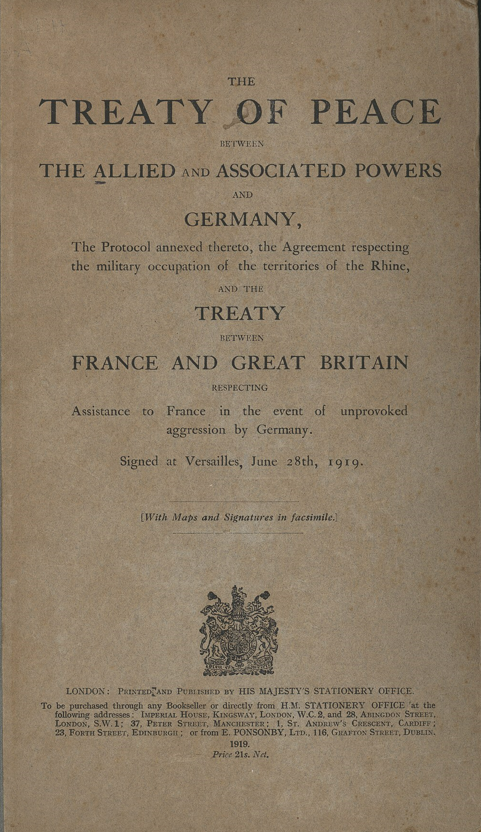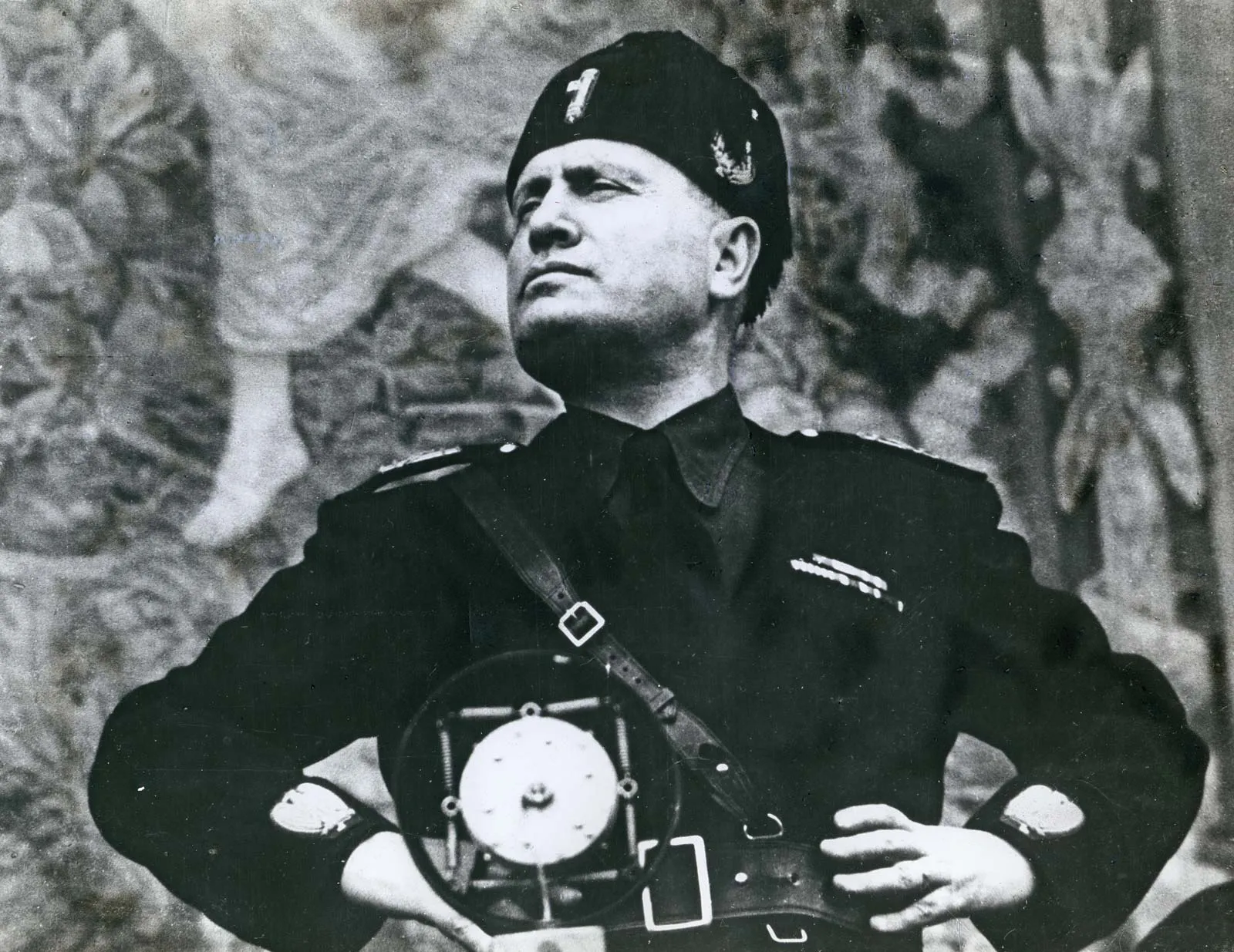 Treaty of Versailles, 1919
Treaty of Versailles, 1919
 Stock market crash, 1929
Stock market crash, 1929
 Benito Mussolini, dictator of Italy
Benito Mussolini, dictator of Italy
 Adolf Hitler, dictator of Germany
Adolf Hitler, dictator of Germany
 Joseph Stalin, dictator of Soviet Union
Joseph Stalin, dictator of Soviet Union
Despite the tenous peace created by the Treaty of Versailles in 1919,
tensions remained high during the interwar period. The reparations imposed
on Germany bankrupted the country and allowed Adolf Hitler to rise to power.
During this time, communist and fascist governments were instituted throughout
Europe as a result of the negative public perception of the current governments.
Prelude
World War 1 was fought between the Allies (Great Britain, France, Russia, and
later the United States) and the Central Powers (Germany, Austria-Hungary, and
the Ottoman Empire). The Allies won, but the horrors of war continued to influence
people throughout the 20's and 30's. Widespread pessimism due to the catastrophic
loss of life during the Great War allowed new governments to be voted in.
Economic Struggles & Great Depression
After the First World War, many European countries were bankrupt. The loss
of millions of soldiers created a shortage of both workers and consumers.
In addition, the reparations imposed on Germany caused mass inflation and
public discontent. The 1929 stock market crash in America only exacerbated
many of these issues. The Great Depression lasted from 1929 to the late 1930's.
Rise of Dictators
In Italy, many were upset that, in their minds, the Treay of Versailles didn't
reward Italy for fighting on the Allied side. Benito Mussolini used this discontent
to be elected to prime minister, quickly consolidating power into himself. By
the mid 1920's, Mussolini had become a totalitarian dictator in Italy.
After World War 1, the Weimar Republic governed Germany. Their inadequacy at
recovering the German economy led to mass inflation and unemployment, creating
unrest. The Great Depression only exacerbated these issues. Adolf Hitler formed
the National Socialist Party (Nazis) and took over the government. Hitler,
following Mussolini's example, consolidated power into himself and became a
dictator. Using secret police-known as the Gestapo-and paramilitary soldiers
-known as Sturm Abteilung-Hitler silenced most of his politcal opponents. He
also began to enact discriminating laws against Jews living in Germany.
In Russia, Lenin's overthrow of the government in the Russian Revolution of
1917 led to the creation of a communist government, the Soviet Union. After
Lenin's death in 1924, Joseph Stalin took over. He industrialized, collectivized
agriculture, and enacted the removal of his political enemies through the Great Purges.
 Treaty of Versailles, 1919
Treaty of Versailles, 1919
 Stock market crash, 1929
Stock market crash, 1929
 Benito Mussolini, dictator of Italy
Benito Mussolini, dictator of Italy
 Adolf Hitler, dictator of Germany
Adolf Hitler, dictator of Germany
 Joseph Stalin, dictator of Soviet Union
Joseph Stalin, dictator of Soviet Union